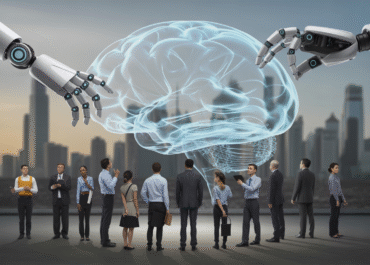AI Applications in Healthcare: Revolutionizing Patient Care and Outcomes
Artificial Intelligence (AI) is no longer a futuristic concept but a tangible force rapidly transforming the healthcare landscape. Moving beyond theoretical discussions, AI is now at the forefront of practical applications that are revolutionizing how medical care is delivered. From enhancing diagnostic accuracy to streamlining drug development and improving patient management, AI is ushering in a new era of health innovation, promising more precise, accessible, and personalized healthcare for everyone.
Early Diagnosis and Predictive Analytics
One of AI’s most impactful contributions to healthcare is its unparalleled ability to analyze vast datasets to identify subtle patterns indicative of diseases. AI algorithms excel at processing complex medical images (X-rays, MRIs, CT scans) and integrating diverse patient data, often detecting conditions like cancer, diabetic retinopathy, and cardiovascular diseases years before traditional methods. This capability is crucial for early detection, enabling timely interventions and significantly improving patient outcomes by allowing for treatment before conditions become critical.
Personalized Medicine and Treatment Plans
AI is the cornerstone of truly personalized healthcare. By analyzing an individual’s unique genetic makeup, lifestyle, environmental factors, and comprehensive medical history, AI can develop highly tailored treatment plans. This allows for the optimization of drug dosages, precise predictions of how patients will respond to specific therapies, and the minimization of adverse effects. The result is more effective, safer, and customized treatments that cater to the individual needs of each patient.
Accelerating Drug Discovery and Development
The journey from a promising molecule to a market-ready drug is notoriously lengthy and expensive. AI dramatically accelerates this process by predicting molecular interactions, identifying potential drug candidates from millions of compounds, optimizing compound structures, and even designing novel molecules with desired properties. This capability significantly reduces the time and astronomical costs traditionally associated with pharmaceutical research and development, bringing life-saving medications to patients faster.
Robotic Surgery and Precision Procedures
Robotic systems powered by AI are enhancing the precision, dexterity, and control available to surgeons, particularly in minimally invasive procedures. These advanced systems can perform intricate tasks with incredible accuracy, often surpassing human capabilities in certain repetitive or fine motor movements. Benefits include reduced recovery times, smaller incisions, less pain, and a lower risk of complications, leading to better surgical outcomes for patients and extending the reach of specialized surgery.
Remote Patient Monitoring and Telemedicine
AI-driven wearable devices and sophisticated remote monitoring systems are transforming how chronic conditions are managed. These technologies allow healthcare providers to continuously track vital signs, activity levels, sleep patterns, and other critical health metrics outside of traditional clinical settings. This enables proactive intervention, helps manage chronic diseases more effectively, and greatly supports telemedicine consultations, making healthcare more accessible and convenient, especially for rural populations or those with mobility issues.
Analysis of Medical Records and Operational Efficiency
AI algorithms can rapidly process and analyze massive volumes of electronic health records (EHRs), extracting valuable insights that inform diagnosis, refine treatment planning, and fuel medical research. Beyond direct clinical applications, AI also plays a crucial role in optimizing hospital operations, managing appointment scheduling, streamlining administrative tasks, and improving resource allocation. This leads to significantly boosted overall efficiency, allowing healthcare professionals to focus more on patient care and less on bureaucracy.
Optimization of Clinical Trials
AI assists in various stages of clinical trials, making them more efficient and effective. From identifying suitable patient cohorts for studies based on specific criteria to monitoring trial progress in real-time and analyzing vast amounts of outcome data, AI reduces biases, ensures more efficient recruitment, and accelerates the development of new treatments by providing data-driven insights. This speeds up the delivery of innovative therapies to those who need them most.
The integration of AI into healthcare is not merely an incremental improvement; it represents a fundamental shift that promises to make healthcare more precise, accessible, and personalized than ever before. While challenges such as data privacy, ethical considerations, and regulatory frameworks need careful navigation, the trajectory of AI in health points towards a future where technology empowers both providers and patients, ultimately leading to healthier lives globally.


